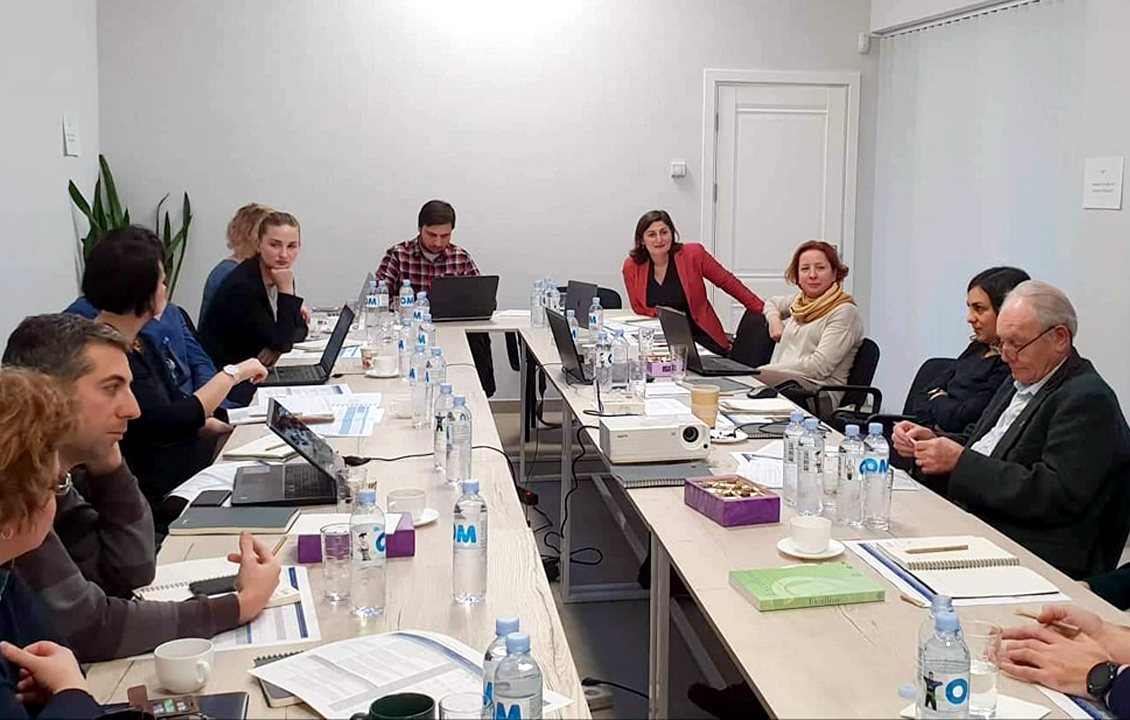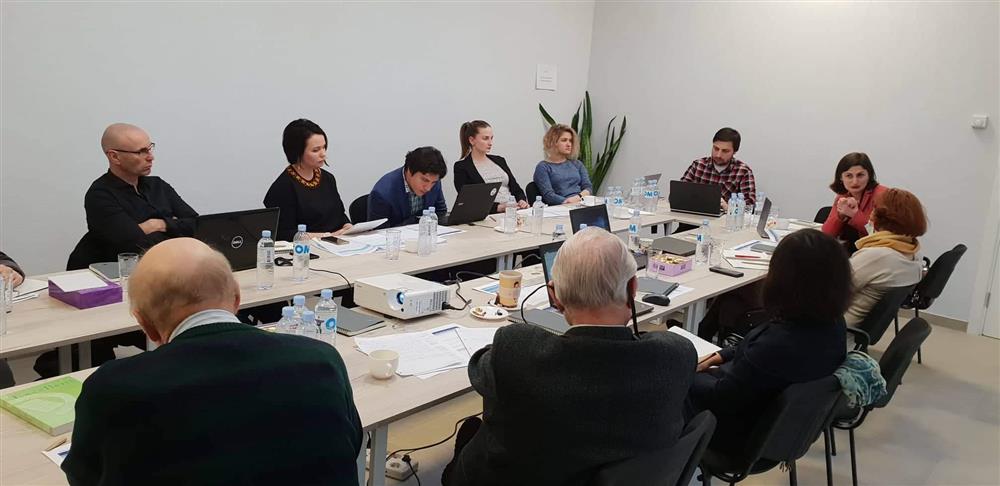
After three years of successful implementation of the multi-partner Tuberculosis Regional Eastern European and Central Asian Project (TB-REP), all the 11 countries from de the EEAC Region are moving forward, advancing from the new model of care towards Improving DR-TB early detection and treatment outcomes within TB-REP 2.0 project. TB-REP 2.0 will be implemented during 2019-2021, consolidating the achievements and addressing the challenges of the TB-REP project which took place between 2016-2018, thus representing the continuity of the commitments assumed by the 11 partner states: Armenia, Azerbaijan, Belarus, Georgia, Kazakhstan, Kyrgyzstan, Moldova, Tajikistan, Turkmenistan, Ukraine and Uzbekistan.
The overall goal of the program is to foster timely TB case detection and improved treatment outcomes in patients with special emphasis on drug-resistant TB, through meaningful involvement of communities and civil society and integrated people-centered TB care delivery systems able to address the needs of key and vulnerable populations.
In the framework of TB-REP 2.0 launching, the first project planning meeting took place on January 30-31. The meeting was hosted by the Centre for Health Policies and Studies (PAS Centre, Moldova), as the principal recipient of the grant and attended by all project partners: WHO Regional Office for Europe, TB Europe Coalition, Global TB Caucus, members of the TB People.
During the work planning meeting, the partners developed the project implementation plan for 2019 and discussed implementing approaches for project interventions and activities.
TB-REP 2.0: new goals. Why does it matter
Within TB-REP 2.0, countries will benefit from the technical assistance in order to understand and address the challenges and opportunities they may encounter as they are transitioning from the externally financed to domestically funded programs. Withal, TB-REP 2.0 aims to keep multi-drug resistant tuberculosis high on the public agenda and actively involve communities and civil society in building sustainable TB care models. The Global Fund will provide financial support, and the main recipient of the grant is Centre for Health Policies and Studies (PAS Center).
Project interventions are structured around two main objectives:
The program incorporates the full spectrum of DR-TB prevention and care issues, including performance of TB services and inter-sectoral approaches to DR-TB with special attention to the needs of key populations and promotion of people-centered approaches. The program targets health systems through support to improving quality and strengthening people-centered approaches in TB care delivery and building environments for universal health coverage and other key dimensions of the reforms. It also addresses sustainable community system strengthening through support of local civil society organizations, aiming at institutional capacity building, planning, leadership, community monitoring and advocacy.
Decline in donor funding and support for transition
Project interventions are also proposed to address the challenges faced by the countries form the EECA Region regarding transition funding TB control programs from external sources to the national public budget, as well as introducing the recently updated WHO treatment guidelines for multidrug-resistant TB treatment.
Also, within TB-REP 2.0 the participating countries will receive assistance in achieving the transformation of health systems in order to change existing inefficient approaches regarding detection and TB treatment.
Background and regional context
TB cases increased significantly in Eastern Europe and Central Asia after the collapse of the Soviet Union, the largest burden being placed on the 11 program countries - Armenia, Azerbaijan, Belarus, Georgia, Kazakhstan, Kyrgyzstan, Moldova, Tajikistan, Turkmenistan, Ukraine and Uzbekistan. Although there has been a decreasing trend since 2012, the TB burden in the program countries remains high.
The Eastern European region has the highest rates of drug-resistant TB (DR-TB) in the world. According to WHO estimates, 17% of new TB cases and 53% of previously treated cases in the region had rifampicin-resistant TB (RR-TB) in 2017, compared to global figures of 3.5% and 18%, respectively. In the program countries, while the overall number of TB cases has been decreasing in recent years, the proportion of drug-resistant TB cases among new and previously treated people remains high and has even increased in some instances. WHO estimated that in 2017, there were a total of 49,410 rifampicin-resistant TB cases in the eleven program countries. Resistance to second-line anti-TB drugs is a critical and growing concern in the region.
TB-REP 2.0: key activities
Project activities include: analyze barriers contributing to delayed care and people with TB not being identified on time towards providing diagnosis, quality treatment and care; provide technical assistance to countries to implement people-centered models of TB care, including review of the current provider payment arrangements for TB services; review of regulatory practices; introducing innovative community-based tools to improve the quality of TB care; support improvement of TB medicines regulation practices in countries, support countries in introducing new treatment regimens for MDR-TB in line with the latest WHO recommendations, conduct regional and country work to improve clinical practice and review and update TB model of care in all 11 participating countries.
TB-REP: How it all began
TB-REP was a multipartner project covering 11 countries: Armenia, Azerbaijan, Belarus, Georgia, Kazakhstan, Kyrgyzstan, Moldova, Tajikistan, Turkmenistan, Ukraine and Uzbekistan. It started in 2016 and the main objectives were preventing TB and drug-resistant TB, improving TB treatment outcomes by increasing political commitment and accelerating adoption of people-centered models of care. Due to their participation in TB-REP, several countries managed to transform their health services by focusing on the TB patient and their needs and essentially improved health financing mechanisms.

Main challenges ahead
The achievements gained by TB-REP partners are threatened by the declining of the GF financial support, faced by most participating countries. The transition requires take over the financial coverage of national TB programs, challenges that countries are not fully ready to meet. Reduced support can affect health system sustainability and the expansion of people-centered TB services. Thus, TB-REP 2.0 ensures the continuity of the actions undertaken over the last three years.